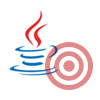
Attackers Using Known Trojan in Exploits on Adobe Zero Day
The newly discovered vulnerability in Adobe Reader and Acrobat that the company is planning to patch next week is being used to install a known Trojan that has been used in attacks against other Adobe vulnerabilities in the past.














